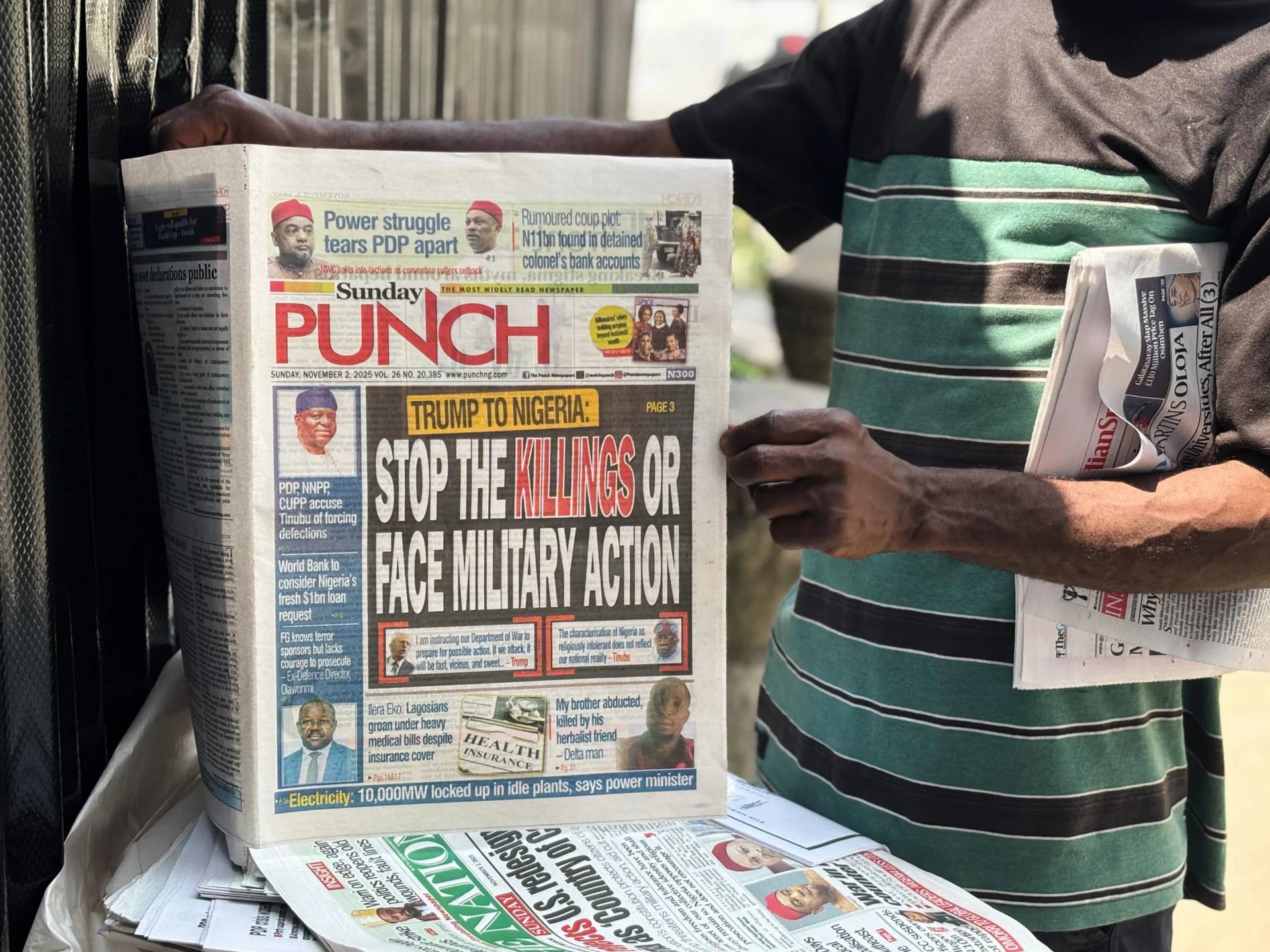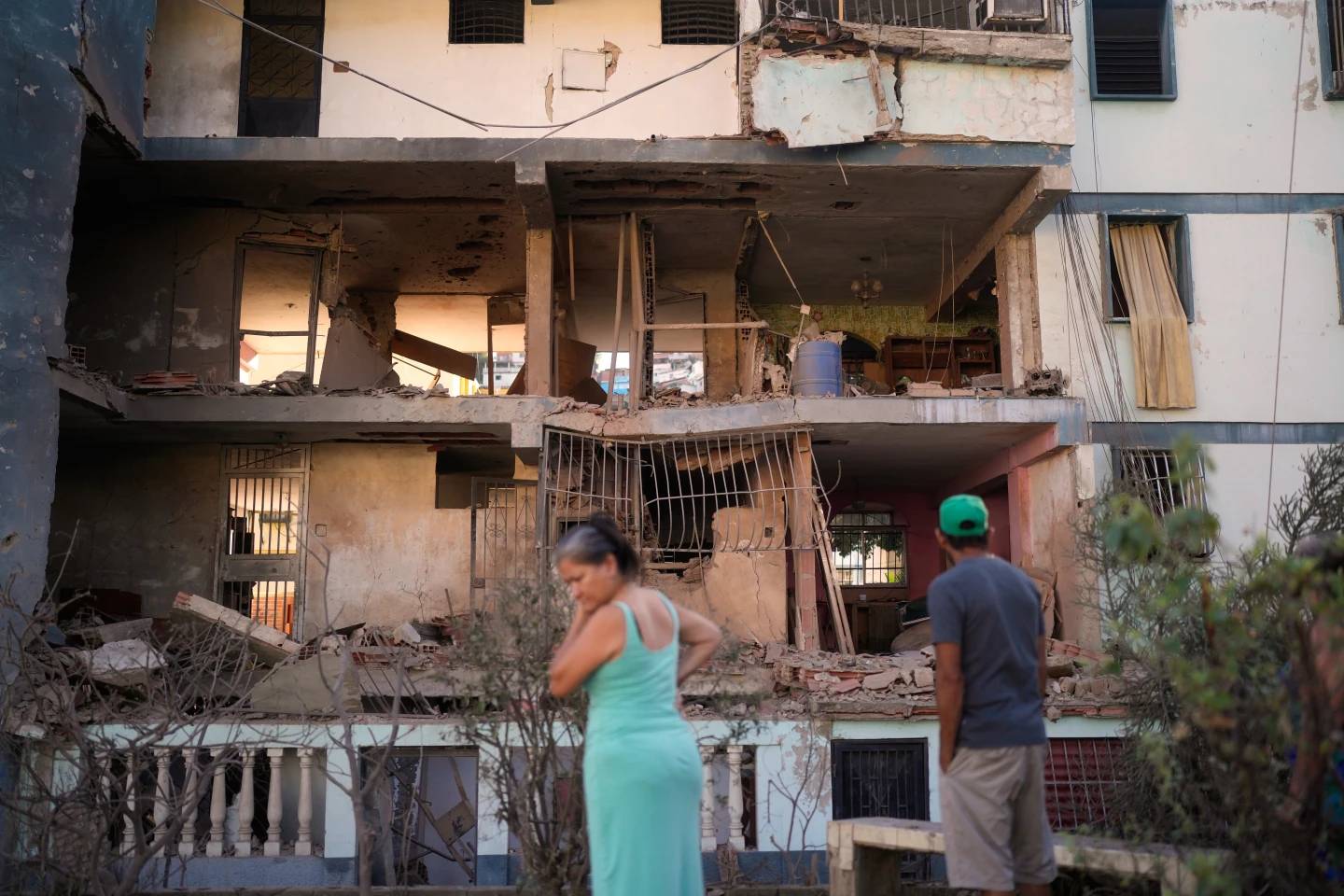ROME — The Vatican made a strong showing at the World Economic Forum at Davos this year, with Pope Francis issuing a message to the market movers and political elite gathered in the Swiss resort and once again sending one of his closest aides to inaugurate the meeting.
Ghanaian Cardinal Peter Turkson, Prefect at the Vatican’s Dicastery for Integral Human Development, spoke to Crux Friday a few hours before his discussion at Davos.
The cardinal answered questions concerning the threat posed by the development of artificial intelligence, saying that a world “dominated by machines” is not desirable and that the Church has an important role to play by offering ethical guidance to the researchers in Silicon Valley.
In the context of a meeting that in many ways is centered around the world’s richest and most elite, the cardinal called on the “the talent” present at Davos not to lose sight of the needs and issues of the poorest and most marginalized in the world, stating that the Vatican’s presence at the event is in some way to “put their concerns on the table.”
The Vatican’s agenda for the meeting may appear at odds with the protectionist and isolationist statements of the President of the United States, Donald Trump, who during a speech at Davos on Friday reiterated his “America First” policy.
This comes a few weeks after the president was reported using disparaging words to describe Africa and Haiti. Turkson stated that he “cannot justify his use of that [language]” and pointed to the unfair trade deals that have allowed some countries to get rich by leaving “the poor down the ladder,” which the cardinal added, “is not a reason for any bragging.”
The following is Crux’s interview with Turkson.
Crux: Why is it important for the Catholic Church to be present at the World Economic Forum at Davos?
Turkson: Because the Catholic Church is here. I mean, the Catholic Church is not the pope or the curia. The Catholic Church is also the faithful, who believe in the teachings of the Catholic Church. And there are people here who are Catholics. As proof of that, we had a Mass last Thursday morning at the parish house here in Davos, and there were several people who have come here to the Davos meeting.
Also, the Catholic Church has a mission of accompanying humanity in all its endeavors. So, the accompaniment of the Gospel as it’s taught by the Catholic Church to everything that is happening in Davos is a very crucial thing. We are here to recognize that this is part of humanity’s [garden] … and we have the obligation to take this announcement to wherever groups of humans are gathered as a source of guidance.
Davos is often portrayed as a meeting of the world’s political, economic and social elite. How does the Vatican ensure that the needs of the poor and marginalized are heard?
We assure the voice of the poor is heard over here, firstly through the message that the Holy Father has sent and the way he draws attention, beyond the concerns of business that some bring to Davos, to other concerns of the poor.
Years back, when the pope started talking about business, he emphasized the fact that business is for the well-being of humanity and therefore invited people to look beyond shareholders and to look also at stakeholders. The stakeholders include the poor who are engaged in business, employees, it includes the communities where the businesses exist, and includes even people who shop and use the products made by business people.
What we have come to do is to invite the shareholders who come here to recognize stakeholders, who go beyond the business people to include those they work with, those who depend on their products and businesses and the communities in which they exist as business people. So in a way, coming to talk about stakeholders over here, we come to talk about the need to have a segment of society, which includes the poor, the excluded, those who are not able to make it to Davos, so we represent them and put their concerns on the table for those who are gathered here.
Pope Francis’s speech, which you read to inaugurate this year’s World Economic Forum, warned among other things of the dangers that technological development entails, including artificial intelligence. Does the Church offer some guidance and warning in this fast-growing sector?
For some time now the popes have been calling for an engagement of the Church with science in dialogue. Pope Benedict already called for a dialogue between faith and reason, and all of them are in search of the truth. There’s not one truth for science and another truth for religion, it’s the same thing we are looking for.
The application of science in the areas of artificial intelligence, robotic and all of that, must serve the needs of the poor, the needs of the common man. How does the Church help this to happen?
I belong to a group that meets with the people of Silicon Valley every year in Rome. The point of the meeting is to encourage or to help them in ethical considerations as a kind of guidance to what can be done. In a way it’s like saying what Pope Francis once said, only because one thing is possible does not mean that it has to be done. If something is possible it needs to be done because it’s guided by virtue, it’s guided by ethical concern, by the good and promotion of the wellbeing of humanity.
The temptation, of course, is to be guided by novelty, innovation and creativity, but it’s just “go, go, go!” Ultimately, all of this has to serve the wellbeing of the human person. Having a world where human beings do not exist anymore, but dominated by machines, is not what we desire. And the guidance of the ethical principles of the Church come in handy, that’s why we engage with the people in Silicon Valley every year.
How can the market movers and thinkers at Davos be an ally with the Church regarding major issues, such as immigration and the environment?
The forces and market forces gathered here are invited to recognize that the aim of the global market is essentially the wellbeing of the human person and the responsibility to the world. Gathered over here we can repeat a message that John Paul II had initiated years ago, repeating something that Pope Leo had said in the past.
The market forces gathered over here have come to display talent, which Pope John Paul II identified as capital. Capital is not just the possession of money, land and all of that. According to Pope John Paul II the possession of talent, the possession of some skills is also a capital and the invitation of the pope is that we learn to put these skills and talents that we have at the disposal and the service of other people to help lift humanity.
It goes back to echoing what Pope Leo said in the past: We have talents, but we are challenged in freedom to exercise responsibility for the needy ones. The use of talent is that we are guided by our free decision to use this aim for the benefit of the poor and needy ones in our society.
If this is understood, then the gathering of the businessmen and thinkers here in Davos is for the purpose of displaying talent and skills that they have developed in their various areas of activity and the invitation in freedom to use those with a sense of responsibility for the wellbeing of humanity.
Not too long ago, U.S. President Donald Trump used disparaging language to describe countries that struggle with economic development. As a member of the clergy and an African, how did you personally react to his remarks and how does the Vatican represent the voices of these countries at Davos?
The use of that language by the president, that was his language … later on it was denied, later on it was explained whatever it was. I cannot explain it, I cannot justify his use of that [language], that’s beyond me.
One thing that is worth noting is that the world of nations needs to be concerned always in relationship with other countries. The simple resources, those that are responsible for the development of several nations, came from elsewhere. It’s always been trade and crude resources that have promoted industrial growth.
When we talk about trade we must recognize that there are things that certain parts of the world possess, which other parts of the world do not possess and it’s by bringing the two together that growth is possible, that the development of the world is possible. Therefore, if some countries have more wealth than other countries, it’s not about what they made but rather to look at how fair this process of exchange of resources has been. In this process some have been exploited. And those countries have been exploited though the growth of other countries who now can’t talk about their worth.
Cocoa does not grow in the United States, it does not grow in London, doesn’t grow in France, doesn’t grow in Switzerland. Look at how much trade there is around! How can the chocolate be processed in the place in which it’s grown? That’s never crossed the mind of anybody? Products grown in one country go to enrich another country. This fact cannot then be used in any way in a disparaging language to disqualify or to denigrate another country.
It should be an invitation rather to react to how treaties have been practiced fairly or unfairly. The fact that some countries have become rich though trade with countries that supplied the raw material responsible for their world, is not a reason for any bragging.
It’s rather an invitation to look at how fair treaties have been exercised over the centuries and how it has led to the development of some rather than others. That self-examination may reveal how fairly treaties have been carried on in the past. I will illustrate some of them by saying that Angola produces all the diamonds, but the joules are not treated there. These countries producing gems and precious stones could also have the processing down there.
In regard to the remarks made by that man or any such remarks, countries have become richer on account of talent and on account also of trade, which has brought the resources to their borders. On account of that, it’s fairer to consider how trade has been done, how it afflicted some and left the poor down the ladder and see or examine whether we cannot begin to do fair trade to enable anybody to be lifted by their practice and the exercise of trade.
















